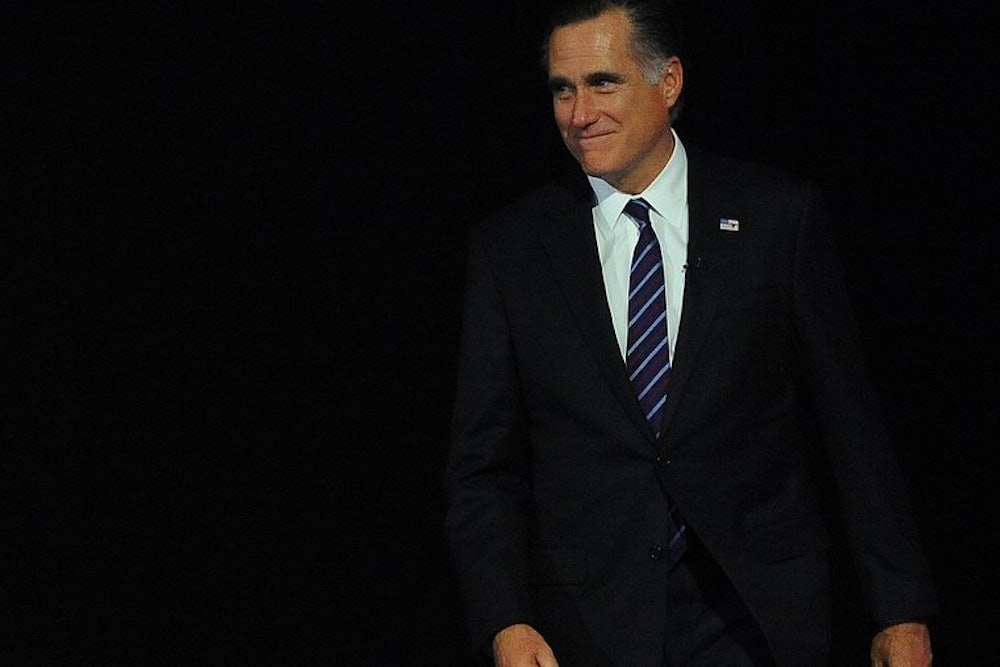Ever since last year's election, the nation's conservatives have been in self-preservation mode: They know something about the GOP needs to change, but they don’t want it to be them. The party establishment would prefer to jettison cultural issues, since it never cared much about cultural issues, anyway. And the faction of fiscal conservatives argues that well-educated, affluent voters are more natural GOP constituents, anyway. But if that's true, then apparently those well-educated, affluent voters don’t realize it yet: A new Washington Post poll found that such voters are even less likely than working-class voters to believe the GOP is “in touch” with the concerns of most people in the United States.
It’s easy to see why many Republicans consider affluent voters a natural constituency, as the party advertises itself as a protector of the nation's job creators, who are more likely to be well-educated and affluent. (Conversely, certain Republicans consider the Democrats' natural constituency to be “the 47 percent.”) From an electoral perspective, it wasn't long ago that the GOP performed better among well-educated voters, suggesting that many of these voters could be persuaded to return to the fold. The Denver and Washington suburbs were voting Republican as recently as 2004. In 1988, almost every northern suburban county chose George H.W. Bush over Michael Dukakis. In contrast, the GOP has made big gains among white working-class voters, making it difficult to argue that populist attacks on the "party of the rich” are to blame for recent losses.
The fiscal conservative’s argument implies that the GOP’s deepening embrace of cultural conservatism—especially in the Bush years—is responsible for the GOP’s decline in the suburbs. AEI’s Charles Murray, for instance, believes that well-educated Asian voters have been lost to Democrats because they now view the GOP as the party of “Bible-thumping, anti-gay, anti-abortion creationist.” But there’s more to the story. The GOP dominated the suburbs during the Cold War, thanks partly to their stances on national security and wedge issues like crime and welfare. But none of these issues survived the Clinton administration, and neither did the perception that Democrats couldn’t manage the economy. There’s not much evidence, at least that I’m aware of, that rigid adherence to fiscal conservatism underpinned the GOP’s strength in the suburbs—especially since many winning GOP presidential candidates were relatively moderate, fiscally.
The Post poll raises other questions. Although Republicans might believe the rich to be more natural GOP voters than the working class, the survey found otherwise: 82 percent of voters with a postgraduate degree believe that the GOP is “out of touch,” compared to just 63 percent of high school educated voters and 85 percent of Democrats. Similarly, 75 percent of voters making more than $100,000 per year believe that the GOP is “out of touch,” compared to 68 percent of voters making less than $50,000 per year. These numbers might be surprising to those who have blamed the GOP’s troubles on various forms of populism, like the "47 percent" video or attacks on the GOP as the party of the rich. Perhaps relatively well-informed voters were referring, in the Post poll, to the GOP being “out of touch” with the rest of the country, not themselves. But the Post also asked voters whether they thought Obama was “out of touch” with most Americans, and the results closely paralleled the results from last November’s election, suggesting that the GOP’s own “out of touch” numbers might parallel their own support.
These data don’t resolve the debate over the GOP’s strategy—not even close. Just because well-educated and high-income voters are more likely to think the GOP is “out of touch” doesn’t necessarily mean that it will be easier for the GOP to rebound among working class voters. Jettisoning cultural issues might be sufficient for the GOP to rebound in the suburbs, while incremental measures to make the GOP the party of the working class might not be enough for a party that has long represented the interests of the rich. But the GOP shouldn’t go forward under the assumption that they face much bigger problems with the working class than with affluent voters. At the moment, it’s the opposite.
